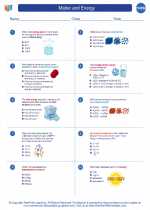Thermoregulation
Thermoregulation is the process by which an organism maintains a stable internal body temperature, despite changes in the external environment. In humans, this temperature is typically around 37°C (98.6°F). The body's ability to regulate temperature is crucial for maintaining optimal cellular function and overall health.
Key Concepts
- Homeostasis: Thermoregulation is a key aspect of homeostasis, which is the body's ability to maintain stable internal conditions.
- Temperature Sensors: The body contains specialized temperature sensors, mainly located in the skin and hypothalamus, that detect changes in temperature.
- Effector Responses: When temperature sensors detect a deviation from the set point, effector responses, such as sweating or shivering, are initiated to bring the body back to its optimal temperature.
- Heat Production and Loss: The body can generate heat through metabolic processes and conserve or release heat through mechanisms like vasoconstriction (narrowing of blood vessels) or vasodilation (widening of blood vessels).
- Thermoregulatory Center: The hypothalamus acts as the body's thermoregulatory center, integrating temperature information and coordinating appropriate responses.
Mechanisms of Thermoregulation
There are several mechanisms by which the body regulates its temperature:
- Sweating: When the body becomes too warm, sweat glands produce sweat, which evaporates from the skin, carrying away heat and cooling the body.
- Shivering: In response to cold temperatures, muscles contract rapidly to generate heat and warm the body.
- Vasodilation and Vasoconstriction: Blood vessels can widen (vasodilation) to release heat or narrow (vasoconstriction) to conserve heat, depending on the body's needs.
- Behavioral Responses: Humans also exhibit behavioral thermoregulation, such as seeking shade when hot or seeking warmth when cold.
Disorders and Imbalances
Disruptions in thermoregulation can lead to various health issues:
- Hypothermia: When the body loses heat faster than it can produce it, leading to a dangerously low core temperature.
- Hyperthermia: Occurs when the body's heat-regulating mechanisms are overwhelmed, leading to a dangerously high core temperature.
- Fever: An elevation of body temperature in response to infection or illness, often mediated by the immune system.
Study Guide
To effectively study thermoregulation, consider the following steps:
- Understand the concept of homeostasis and its relevance to thermoregulation.
- Learn about the various temperature sensors in the body and their roles in detecting temperature changes.
- Explore the effector responses that the body employs to regulate temperature, such as sweating, shivering, and vasodilation/constriction.
- Understand the role of the hypothalamus as the body's thermoregulatory center and its integration of temperature information.
- Study the mechanisms of thermoregulation, including sweating, shivering, and vasomotor responses.
- Review common disorders and imbalances related to thermoregulation, such as hypothermia, hyperthermia, and fever.
Thermoregulation is a fundamental aspect of human physiology, with implications for overall health and well-being. Understanding its mechanisms and the potential disruptions to these mechanisms is essential for a comprehensive understanding of human biology.
[Thermoregulation] Related Worksheets and Study Guides:
.◂Chemistry Worksheets and Study Guides High School. Matter and Energy

 Worksheet/Answer key
Worksheet/Answer key
 Worksheet/Answer key
Worksheet/Answer key
